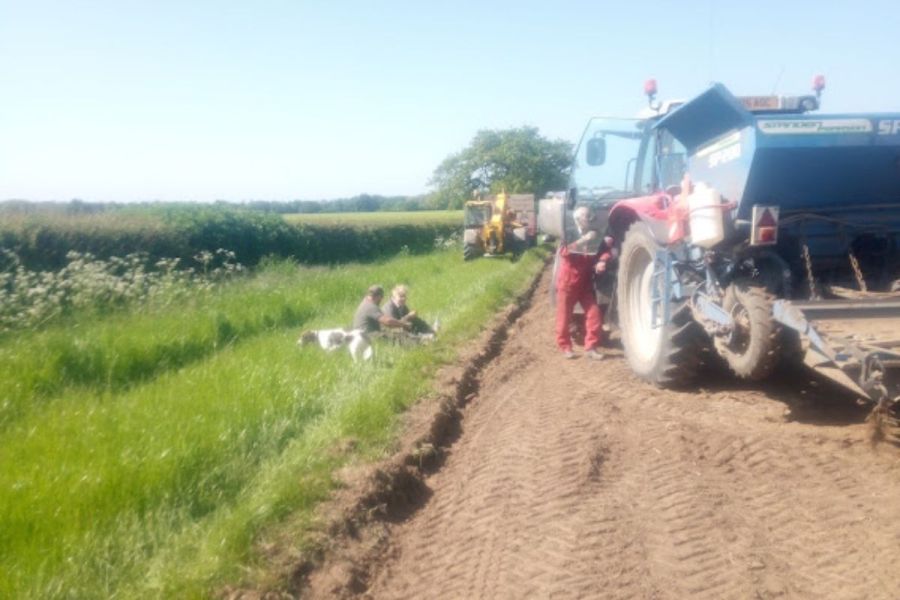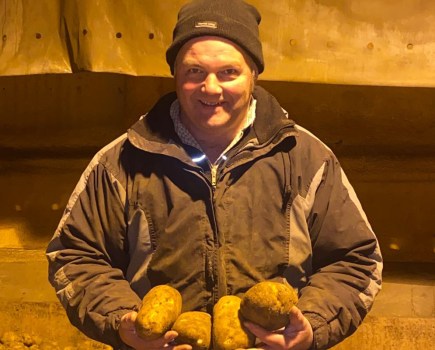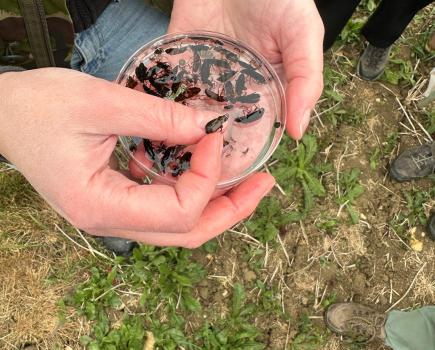By Andrew Wilson
As I write this in late May the last of the N is on the combinable crops, and all are romping through growth stages apace. T2 fungicide is on most of the wheat, and the gate is now closed on the winter barley.
Our experimental bicrop of winter beans and wheat is continuing to entertain my neighbours. The bean element is variable rate (that is, there were more volunteers left by the combine at the bodied end of the field than the light end). It’s not scientific in any way, but it’s an interesting look-see nonetheless. Personally, my gut feeling is that the hassle factor will outweigh the benefits, but we’ll see.
Beet drilling was a very stop-start affair towards the end of April and took nearly a fortnight due to rain every other day. In my last column, I highlighted the various things we are doing to ward off virus carrying aphids in our beet, and at the moment I’d say, ‘so far so good’. I may be working with my optimism set to maximum here, but in simple Yorkshire terms, ‘doing nowt, achieves nowt’.
We started planting potatoes in the first week of May here and finished three weeks later. It was very start, then stop for rain at the start, and ground conditions were far from perfect. Location and topography mostly dictated how well the cover crops survived the winter, but it was clear to us that better cover crops equate to easier cultivation, and less of it.
As ever, the last planted crops (into warmer soil) are the fastest out of the blocks, with chitted seed planted into moist soil of 12⁰C, resulting in emergence in less than a fortnight. Blight pressure is high and the fun of the irrigation season is approaching rapidly, much to the disdain of the team. Pre-emergence herbicides, going on with liquid nitrogen, are nearly complete and pollinator strips are due to be sown once we get a drop of rain.
Due to the very mild temperatures, we did have to de-sprout some potato seed this year, which highlighted the need we have for better seed storage on the farm. We do have a good second hand fridge at our disposal, though gassing it up is an eye wateringly large amount of money, and we lack a suitable shed in which to set it up. Potatoes, particularly, demand huge capital investment, which without a very long term viewpoint and commitment simply would never happen. Eternal optimism is as essential as it has ever been.
With less acres in the ground than we have had since 2008, it’s fair to say that our operation has seen some consolidation, partly to keep a lid on capital demanded, but also to reduce risk, which for too long has failed to be mirrored by appropriate reward. We have adapted, tweaked, changed and polished, but the challenges keep coming. In theory, this season looks better, but time will tell.
The fertiliser market continues to play its tricks (is it coincidence that the N price seems to follow the wheat price?). This time last year I bought UK AN at £630/t and this year £327/t seems a less painful figure to be wrong at.
My reduced input potato trial is set up and should make for some interesting findings in due time, particularly from a financial point of view. Alongside reduced chemical blight control, we’re looking at nutrition, disease control, crop resilience and less soil movement, with different companion crops and soil replacers in there to assess too. If we don’t try these things, we’ll never know if they’ll work or not.
A few weeks ago, I recorded a short video on the poor standard of PTO guards that we as an industry have to endure. I posted it on social media where it generated quite some interest, though predictably response from manufacturers or safety advisers and enforcers has been, disappointingly, zero.
It’s my opinion that manufacturers can do much more to help reduce injuries – if blockages could be cleared from the cab, then people wouldn’t be tempted into danger – why can scroll rollers not be reversed like clod rollers, for example? Almost every year someone is injured in a potato harvester, please take every opportunity between now and lifting time to make sure kit and operators are as well prepared for a safe season as they can be.
I often say that ‘there is always a better way’ (of doing everything) and sometimes that is a convenient excuse for trying something new. Occasionally though, the rulebook needs a bit of a rewrite – is that time now?
This article was taken from the latest issue of CPM. For more articles like this, subscribe here.
Sign up for Crop Production Magazine’s FREE e-newsletter here.




